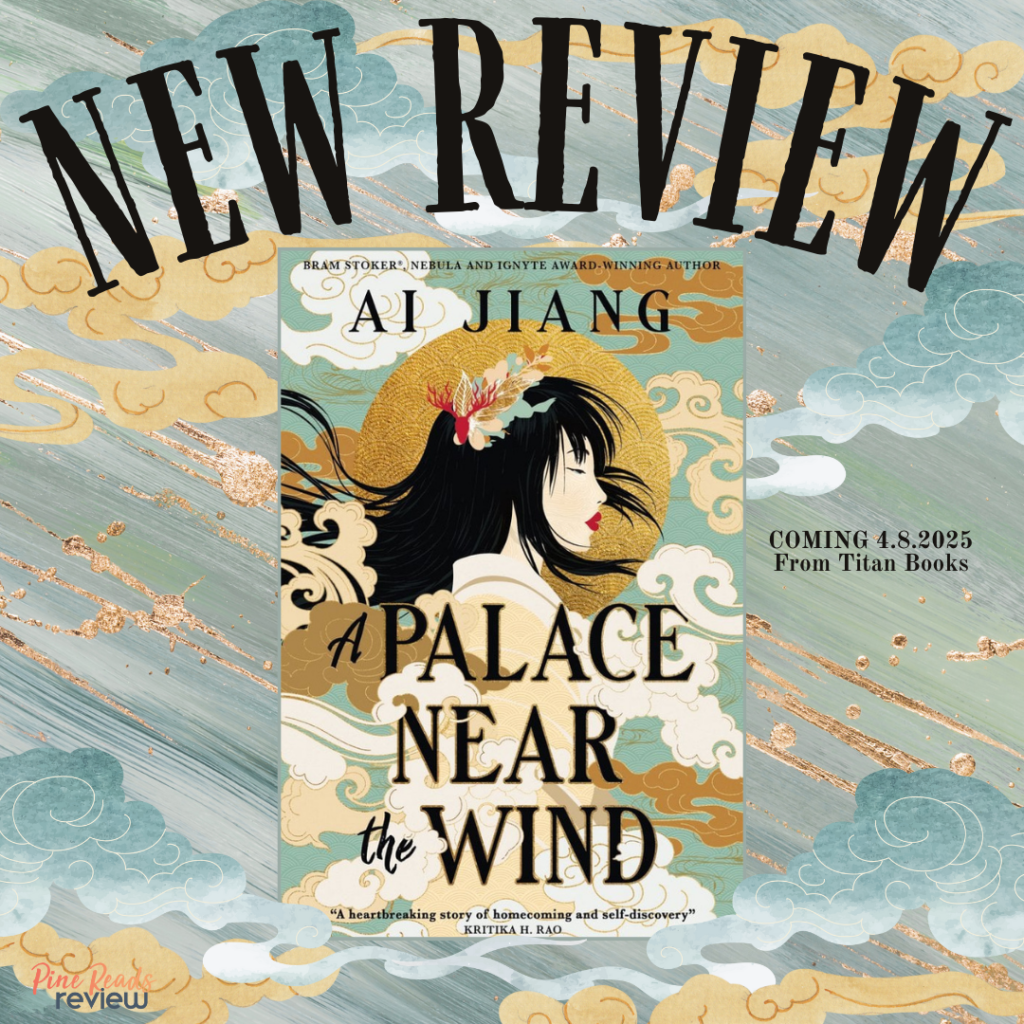
A Palace Near the Wind coming April 15th, 2025 from Titan Books; 192 pages
Content Warning: Vomiting, blood, descriptions of animal death
About the Author: “Ai Jiang is a Chinese-Canadian writer, winner of the Bram Stoker®, Nebula and Ignyte Awards, and Hugo, Astounding, Locus, and BSFA Award finalist, and an immigrant from Shanghu, Changle, Fujian currently residing in Toronto, Ontario. Her work can be found in F&SF, The Dark, Uncanny, The Masters Review, among others. She is the recipient of Odyssey Workshop’s 20the 22 Fresh Voices Scholarship and the author of Linghun and I AM AI” (Bio from author’s website).
Find Ai Jiang on the following platforms:
Liu Lufeng is the eldest daughter of Feng’s royal family, which leads a people known as the Wind Walkers. With bodies made of bark and branches and the ability to harness the wind, the people of Feng inhabit a wildly lush territory, but are under constant threat of colonization by the Land Walkers. Obligated by the need for survival, Feng offers up a new bride to the human king of the Land Walkers every few years to prevent unwanted expansion into their land. Now that her mother and all her available sisters have been sold off to the king, it’s Lufeng who’s being traded for peace despite being the next heir of Feng. However, she intends to put a stop to these “negotiations” by killing the king on their wedding day—until she realizes that the roots of Feng’s problems go much deeper than the monarch himself.
As someone who loves experiencing the magic of a good short story or novella, I was thrilled to read A Palace Near the Wind—but ultimately, I was disappointed by it. It certainly has some things to recommend it; for example, it touches on a lot of important themes that are more relevant than ever, like the ways in which the destruction of native lands leads to the destruction of native cultures. The novella also outlines the intriguing divide between preservation and modernization, and delicately explores the complications of loving your native home and culture while simultaneously resenting it for feeling restricting. That being said, some of this messaging was somewhat obvious. At times, the novella seemed more like a shallow commentary than a story. This felt especially true since most of the characters and their relationships fell flat, making the big ideas appear forced. Much of the worldbuilding felt similarly out of place. In the first half of the book, almost every line of dialogue was followed by a paragraph of information about the world, which was disorienting and oftentimes unnecessary. What were supposed to be the most dramatic moments in the book were also anti-climatic (and in some cases, repetitive), which made me feel even less invested in the story. I might be interested in seeing whether Ai Jiang’s writing develops in the future, but I’m not sure that I’ll be jumping to get my hands on a copy of A Palace Near the Wind’s sequel any time soon.
A Palace Near the Wind releases on April 15th, 2025.
Pine Reads Review would like to thank NetGalley and Titan Books for sending us an ARC in exchange for an honest review. Any quotes are taken from an advanced copy and may be subject to change before final publication.
Melia Gemrose, Pine Reads Review Co-Assistant Director and Lead Editor